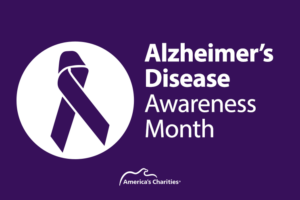Sarah Ford | February 18, 2014
Study Affirms New Standard for Detecting Melanoma Metastasis to the Lymph Nodes
Source: www.news-medical.net
Long-term research that was initiated at UCLA’s Jonsson Comprehensive Cancer Center on lymphatic mapping and sentinel-node biopsy, techniques for detecting the earliest spread (metastasis) of melanoma, the deadliest form of skin cancer, has confirmed that these techniques significantly prolong patients’ disease-free and melanoma-specific survival over the traditional observational “watch and wait” techniques.
This affirms a new standard for detecting melanoma metastasis to the lymph nodes by allowing doctors to quickly determine which patients actually have nodal metastasis and may benefit from having their non-sentinel lymph nodes removed (approximately 20% of patients), while sparing the surgery and its associated complications and substantial cost for the many patients who it cannot benefit (approximately 80% of patients).
Led by the late Dr. Donald L. Morton, former UCLA professor of surgery and director of the John Wayne Cancer Institute in Santa Monica and Dr. Alistair J. Cochran, professor in the departments of surgery and pathology and laboratory medicine at the David Geffen School of Medicine at UCLA, the study was published February 13, 2014 in the New England Journal of Medicine, and evaluated outcomes of 2001 melanoma patients at 10 years of follow-up. The results confirm that lymphatic mapping and sentinel-node biopsy represent an advantageous change in practice for doctors treating melanoma patients.
One important long-term finding was that the thickness of the initial melanoma tumor relates to the effectiveness of these treatments in managing nodal and other metastases. Patients with primary melanoma tumors of intermediate thickness (1.20 to 3.5 millimeters thick) who had sentinel-node biopsies with immediate complete removal of the lymph nodes if the sentinel node contained cancer cells had an overall disease-free survival of 71.3% compared with 64.7% for those whose nodes were observed without sentinel biopsy. The research also found that sentinel-node biopsy prolonged distant disease-free survival (survival without disease spread to distant organs such as brain, lungs, or liver) and melanoma-specific survival (survival without development of additional metastases) for patients with lymph node metastasis from primary melanomas of intermediate thickness.
20% of patients with melanoma have…
Get Resources and Insights Straight To Your Inbox
Explore More Articles
Open Position: Customer Service Coordinator (Remote-Part Time)
Position Title: Customer Service Coordinator (Remote – Part Time) Department: Charitable Funds Management Solutions We are a non-profit charitable organization looking for skilled individuals who…
Read ArticleGet Resources and Insights Straight To Your Inbox
Receive our monthly/bi-monthly newsletter filled with information about causes, nonprofit impact, and topics important for corporate social responsibility and employee engagement professionals, including disaster response, workplace giving, matching gifts, employee assistance funds, volunteering, scholarship award program management, grantmaking, and other philanthropic initiatives.




